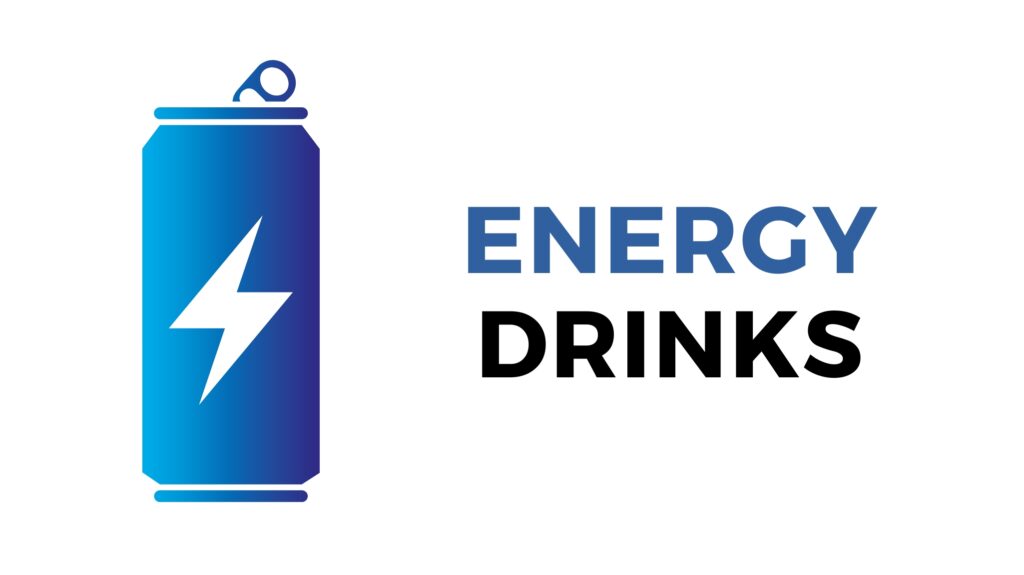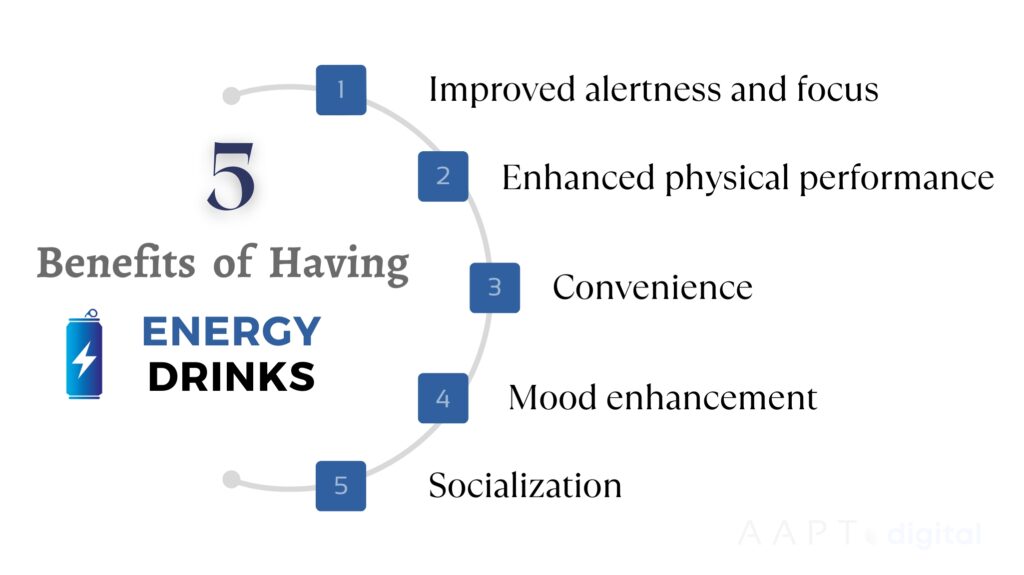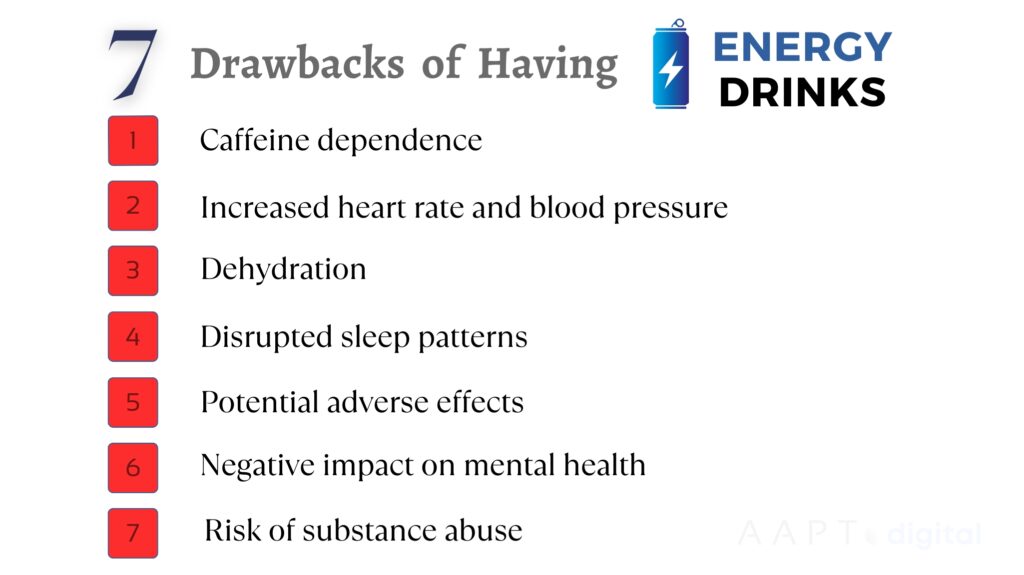Are Energy Drinks Good or Bad for Health? – Benefits and Drawbacks of Energy Drinks
This post was last updated on October 3rd, 2024

Energy drinks have become increasingly popular in recent years as a quick and convenient way to boost alertness, energy, and performance. Typically containing caffeine, sugar, vitamins, and herbal extracts, these beverages are marketed as providing a rapid energy boost. While some people turn to energy drinks to help them power through busy days or late nights, others consume them before workouts or sports events to enhance performance. However, the high caffeine and sugar content in many energy drinks can lead to adverse health effects, including increased heart rate, anxiety, insomnia, and digestive issues.
Additionally, excessive consumption of energy drinks has been linked to more serious health concerns such as heart palpitations, high blood pressure, and even cardiac arrest. Hence, energy drinks good or bad for health, depends on how our body reacts to such sugar loaded drinks. Despite their popularity, it’s important to consume energy drinks in moderation and be aware of their potential risks to overall health and well-being.
What Are the Main Ingredients of Energy Drinks?
The main ingredients of energy drinks typically include
Caffeine: This is the primary active ingredient in most energy drinks, known for its stimulating effects on the central nervous system, which can increase alertness and reduce fatigue.
Sugar: Energy drinks often contain high levels of sugar, which provide a quick source of energy. However, excessive sugar consumption can lead to health issues such as weight gain and tooth decay.
Taurine: This amino acid is commonly found in energy drinks and is believed to enhance physical and mental performance, although scientific evidence supporting its effectiveness is limited.
B-vitamins: Energy drinks often contain B-vitamins such as B6, B12, and niacin, which are involved in energy metabolism and may help convert food into energy.
Herbal extracts: Some energy drinks may contain herbal ingredients like ginseng, guarana, or ginkgo biloba, which are believed to have stimulated or energizing effects.
Other additives: Energy drinks may also contain additives such as preservatives, artificial colors, and flavorings to enhance taste and shelf life, which is why proving energy drinks good or bad, depends on the ingredients we are consuming too.
It’s important to note that the specific ingredients and their concentrations can vary widely between different brands and formulations of energy drinks. Additionally, some energy drinks may contain additional ingredients not listed here.
Is it Okay to Drink Energy Drinks Every day?
Regular consumption of energy drinks, especially in large quantities or on a daily basis, may have potential health risks.
Here are some considerations:
Caffeine content: Most energy drinks contain high levels of caffeine, which can lead to caffeine dependence, increased heart rate, elevated blood pressure, and difficulty sleeping if consumed in excess.
Sugar content: Many energy drinks are loaded with sugar, which can contribute to weight gain, tooth decay, and an increased risk of chronic diseases like diabetes and heart disease if consumed excessively.
Other ingredients: Energy drinks often contain other stimulants, herbal extracts, and additives whose long-term health effects are not well understood.
Dehydration: Some energy drinks have diuretic effects due to their caffeine content, which can lead to dehydration if consumed in large quantities.
Interaction with other substances: Mixing energy drinks with alcohol or medications can have adverse effects on health and increase the risk of negative outcomes like alcohol poisoning or impaired judgment.
Overall, it’s best to consume energy drinks in moderation and consider healthier alternatives like water, herbal teas, or natural fruit juices for hydration and energy. Individuals with certain medical conditions or sensitivities to caffeine should exercise caution and consult with a healthcare professional before consuming energy drinks regularly, to help you know, energy drinks are good or bad.
Benefits of Having Energy Drinks

While energy drinks are often consumed for a quick energy boost, it’s essential to be aware of potential drawbacks and risks.
However, some potential benefits of drinking energy drinks include:
1. Improved alertness and focus
The caffeine and other stimulants in energy drinks can temporarily increase alertness, concentration, and cognitive function, helping individuals stay awake and focused for a short period.
2. Enhanced physical performance
Energy drinks may improve endurance, stamina, and physical performance, making them popular among athletes and individuals engaging in intense physical activities.
3. Convenience
Energy drinks are convenient and readily available, making them a convenient option for a quick energy boost on-the-go or during long hours of work or study.
4. Mood enhancement
The caffeine and sugar in energy drinks may provide a temporary mood lift, promoting feelings of alertness, motivation, and well-being.
5. Socialization
Energy drinks are often consumed in social settings, providing a source of enjoyment and camaraderie among friends or colleagues.
While these benefits may seem appealing, it’s crucial to consume energy drinks in moderation and be mindful of their potential risks, including caffeine dependence, increased heart rate, elevated blood pressure, and potential interactions with medications or other substances. Additionally, individuals with certain medical conditions or sensitivities to caffeine should exercise caution and consult with a healthcare professional before consuming energy drinks regularly.
Drawbacks of Having Energy Drinks

Well, energy drinks good or bad, always have a way to find out what adverse effects we are dealing with when it comes to drinking energy drinks that are mostly loaded with sugar or say calories to give you an instant boost of energy.
Despite their popularity, energy drinks come with several drawbacks and potential risks, including:
1. Caffeine dependence
Energy drinks typically contain high levels of caffeine, which can lead to dependence and withdrawal symptoms when consumption is reduced or stopped. This dependence can contribute to a cycle of increased consumption and potential health issues.
2. Increased heart rate and blood pressure
The combination of caffeine and other stimulants in energy drinks can elevate heart rate and blood pressure, potentially increasing the risk of cardiovascular problems, especially in individuals with pre-existing conditions.
3. Disrupted sleep patterns
Consuming energy drinks, especially late in the day or close to bedtime, can disrupt sleep patterns and lead to insomnia or poor sleep quality, affecting overall health and well-being.
4. Dehydration
Some energy drinks contain diuretic ingredients or high levels of sugar, which can contribute to dehydration if consumed excessively, especially when combined with physical activity or in hot weather.
5. Potential adverse effects
Excessive consumption of energy drinks has been associated with a range of adverse effects, including headaches, nausea, jitteriness, anxiety, digestive issues, and even more severe complications in rare cases.
6. Negative impact on mental health
The high caffeine content in energy drinks can exacerbate anxiety, panic attacks, and other mental health issues, particularly in individuals predisposed to such conditions.
7. Risk of substance abuse
Energy drinks are often consumed in combination with alcohol or other substances, which can increase the risk of harmful behaviors, impaired judgment, and addiction.
Overall, while energy drinks may offer a temporary energy boost, their potential drawbacks and risks should be carefully considered, and consumption should be moderated or avoided, especially for vulnerable populations such as children, adolescents, pregnant women, and individuals with certain medical conditions.
You may like this
(AAPTDIGITAL1002AC)
Recommended For You
Strength & Conditioning Training at a Top Sports Clinic in Singapore
Priyadarshini Muduli
A full time passionate writer with imperishable determination to bring healthy, smart and pragmatic changes individually and socially. Concentrate especially on lifestyle, life and personal improvement, relationships, mental health and behavior, viral issues and literature based subjects.




